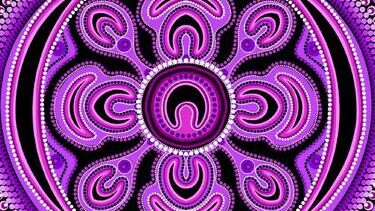
A new suite of resources designed to boost awareness of polycystic ovary syndrome (PCOS) among Aboriginal women and their health professionals in the Mparntwe (Alice Springs) area stands to benefit communities across the country.
The hormonal condition affects 8-10% of women in the wider population and is common among First Nations communities.
These resources are the result of a partnership between Alukura Women’s Health Service (part of Central Australian Aboriginal Congress, an Aboriginal community-controlled health service) and Jean Hailes for Women’s Health.
The suite includes booklets on periods and PCOS as well as animations on periods, PCOS, and how to stay healthy with PCOS. For health professionals, there is a PCOS webinar and an educational toolkit (available as a hard copy flipchart or a PowerPoint presentation). The educational toolkit is designed to support health professionals when discussing PCOS with women.
These things in the booklet are really good for me because I can understand it. If you had put it in an educational way or [used] big words, I wouldn’t have known what you were talking about.”
Community member interviewed as part of the evaluation
What is significant about the development of the resources is their co-design approach which involved consultations with community members as well as local health professionals and Aboriginal Health Practitioners. The content was then reviewed by PCOS subject matter experts to ensure accuracy from a medical perspective.
While these resources were co-designed to meet the specific needs of Aboriginal women and health professionals in the Mparntwe area, there has been broad uptake from communities all across Australia.
Because there are not a lot of English words, I think that’s respecting our culture.”
Community member interviewed as part of the evaluation
The wonderful illustrations for the resources were developed by Coolamon Creative, a 100% Aboriginal owned and operated creative services agency in Mparntwe.
An independent evaluation of the joint project was undertaken by Dr Emily Gilbert, a public health researcher at Charles Darwin University with expertise in community-based evaluation. As part of the evaluation, Dr Gilbert conducted interviews with Aboriginal women in Mparntwe. Overall the women found the resources were simple and easy to understand, and they believed the illustrations captured the diversity of their communities.
…I love the illustrations because it’s relatable. Like that’s family. Grandma sitting in the chair, her knees are going. So, I think it is well done. And I think it’s acceptable.”
Community member interviewed as part of the evaluation
The resources produced as part of this project can be found on the Jean Hailes website via the link below. They can be viewed and downloaded digitally, and hard copy booklets and educational toolkits are available to order.
PCOS and periods resources for Aboriginal and Torres Strait Islander communities
View them hereAll reasonable steps have been taken to ensure the information created by Jean Hailes Foundation, and published on this website is accurate as at the time of its creation.
© 2025 Jean Hailes Foundation. All rights reserved. This publication may not be reproduced in whole or in part by any means without written permission of the copyright owner. Contact: licensing@jeanhailes.org.au